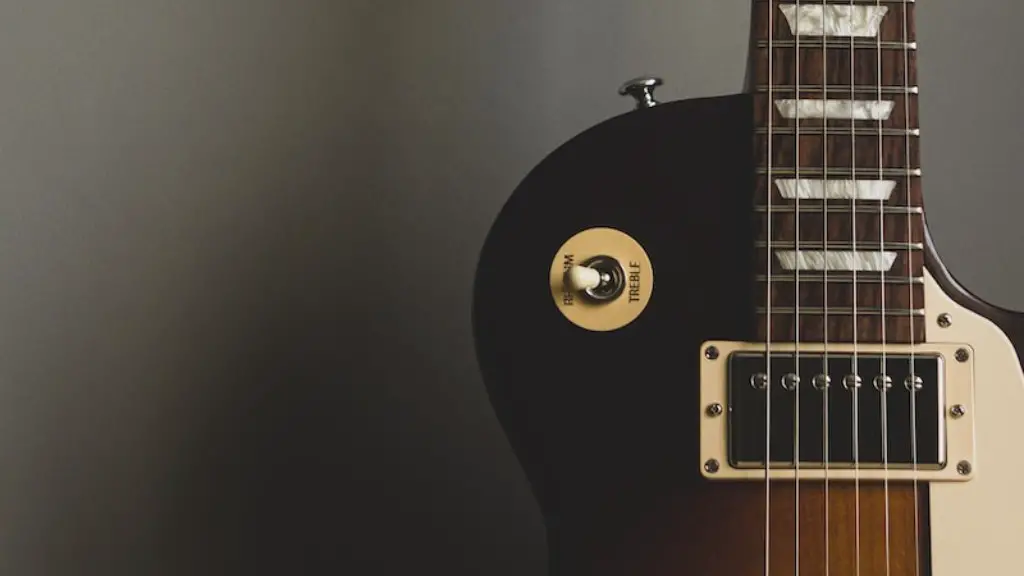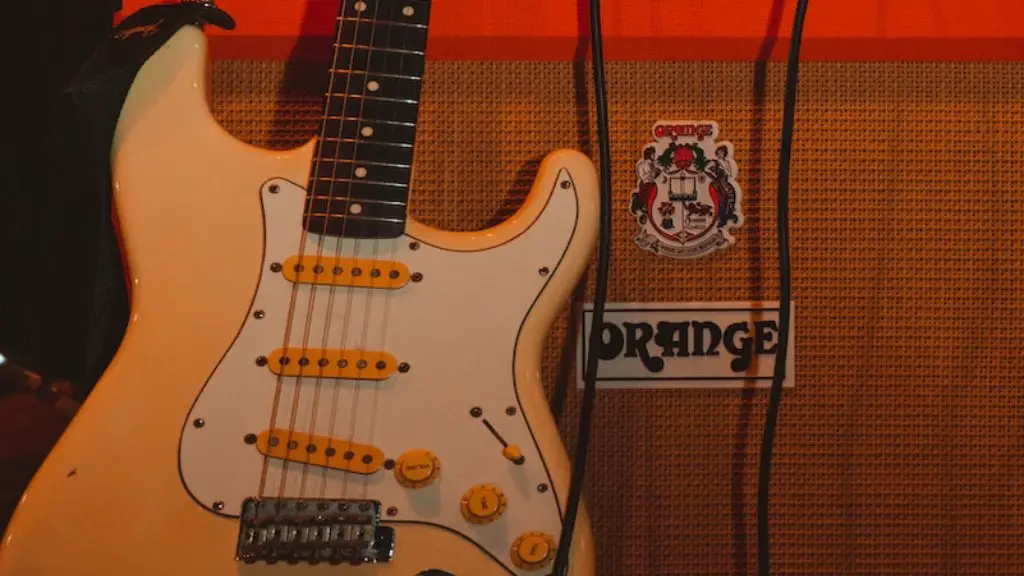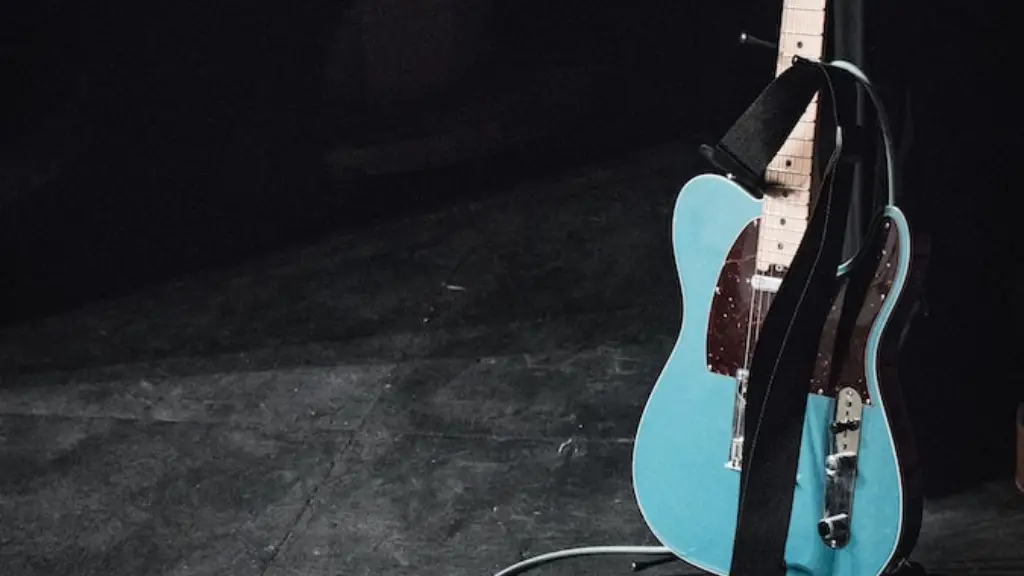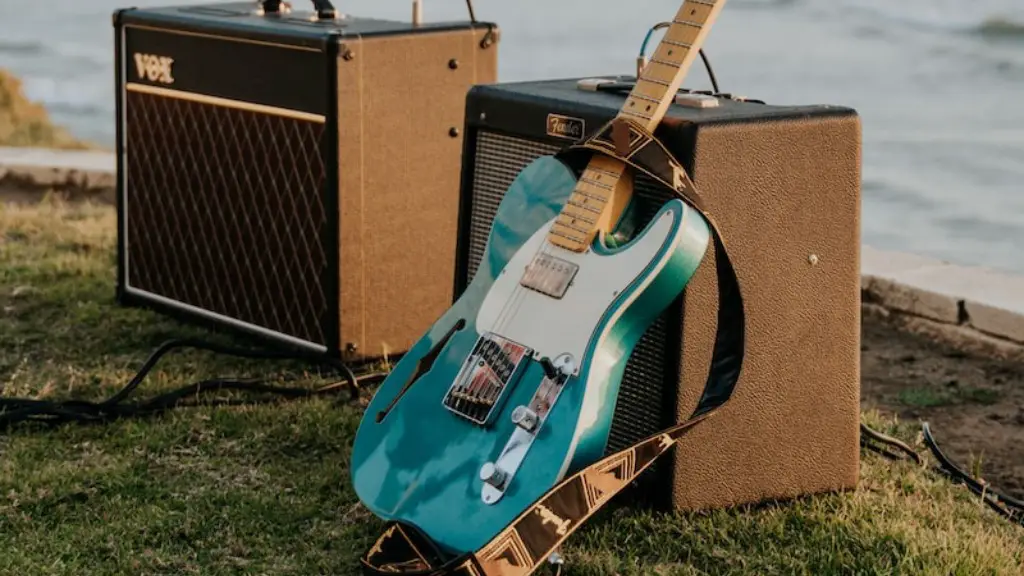Electric guitar is a popular instrument to learn, but it can be quite difficult to master. It requires patience and dedication, as well as knowledge of chords and scales.
To learn electric guitar, you will need to familiarize yourself with the basics such as finger placement, tuning the guitar, and understanding chords and scales. You will also need to practice regularly in order to build up your skills. There are many resources available online that can help you get started.
It is important to find a good teacher who can guide you through the learning process and provide support and guidance when needed. Taking lessons can also help you stay motivated and focused on improving your playing ability.
Overall, learning electric guitar isn’t easy but it is definitely achievable with enough practice and dedication. With a positive attitude and the right resources, anyone can become an electric guitar player!
Basic Guitar Chords and Techniques
Learning to play electric guitar can be a challenging and rewarding experience. It requires focused practice, dedication, and patience to become proficient. The basics of guitar playing include understanding chords, scales, techniques, and knowledge of the instrument itself.
Start by familiarizing yourself with the parts of the guitar. Learn how to tune it and make sure all the strings are in tune with each other. To learn chords, start with basic open chords such as A major or D minor. Once you can comfortably play these chords, you can move on to barre chords or seventh chords. Practice changing between these chords quickly and accurately.
Scales are an important part of learning electric guitar as they are used for improvising solos and writing melodies. Start by learning a few basic scales such as the major or minor pentatonic scale. As you become more comfortable playing scales, explore different modes such as Mixolydian or Dorian which will add new sounds to your playing.
Finally, there are many techniques that will help create unique sounds such as hammer-ons, pull-offs, slides, string bends, vibrato and more. Experiment with each technique until it becomes second nature when playing a solo or melody line. With time and practice you will be able to express yourself through the electric guitar!
Types of Electric Guitars
Electric guitars come in many shapes, sizes, and styles. The most popular types are the solid body, hollow body, semi-hollow body, and acoustic-electric hybrid. Solid body guitars are the most common type and they produce a bright sound with plenty of sustain. Hollow body guitars have a more resonant tone and are often used in blues and jazz. Semi-hollow body guitars combine aspects of both solid and hollow body guitars to create a unique blend of sound. Acoustic-electric hybrids offer the best of both worlds—a powerful electric sound combined with the warmth of an acoustic guitar.
Learning electric guitar can seem intimidating at first, but with practice and determination it is possible to become proficient in a relatively short amount of time. It is important to choose lessons that focus on the type of music you would like to play, as this will help you stay motivated and focused on mastering the instrument. With patience and dedication any guitarist can become a masterful musician.
Essential Gear for Playing Electric Guitar
Learning electric guitar can be a challenging but rewarding journey. To get started, you’ll need to equip yourself with the right gear. An electric guitar and amplifier are the two most essential pieces of equipment. You’ll also need an instrument cable to connect your guitar to the amp, as well as a strap and picks. Other useful accessories include a tuner, extra strings, an effects pedal, and an amplifier stand.
A guitar case or gig bag is also recommended for storing and transporting your instrument safely. You may also want to invest in a metronome or drum machine to help you keep time when practicing your riffs and licks. Finally, don’t forget about ear protection for those long practice sessions! With the right gear at your disposal, you can start exploring the world of electric guitar playing with confidence.
Learning Electric Guitar
Learning electric guitar can be difficult, but it doesn’t have to be. The key to success is finding the right teacher and course for you. With the right guidance, you can learn how to play electric guitar quickly and effectively. A good teacher will provide the knowledge, techniques and tips needed to help you become a great guitarist. They will also help you stay motivated and on track with your progress.
When selecting a course or teacher, it’s important to consider your skill level and what type of music you want to play. Beginners should look for courses that focus on basic skills such as strumming chords and playing notes. Intermediate players may want to look for more advanced techniques such as different scales or soloing. No matter your skill level, there are plenty of resources available online and in person that can help make learning electric guitar easier.
Finding the right teacher or course is essential for learning electric guitar successfully. With some effort and dedication, anyone can learn how to master this instrument.
How Long Does It Take to Learn Electric Guitar?
Learning electric guitar is a great way to express your creativity and hone your musical skills. Although it may seem daunting at first, with the right guidance and practice, anyone can learn how to play electric guitar. Depending on how much time you devote to practice and how quickly you progress, it can take anywhere from a few weeks to a few months to move from a beginner level of playing to an intermediate level.
It is important to keep in mind that everyone learns differently, so the amount of time it takes will vary for each individual. Dedicating at least an hour or two of practice each day is generally recommended for those wanting to learn electric guitar quickly. It is also important to start with the basics, such as learning chords and scales before moving onto more complex techniques like fingerpicking or lead playing.
In addition to practicing regularly, taking lessons from an experienced teacher can be very beneficial in helping you develop your skills and technique faster. There are many online resources available that offer tutorials and lessons, as well as books and instructional DVDs which can help you get up-to-speed on the basics quickly.
Overall, learning electric guitar isn’t too difficult if you practice regularly and have patience with yourself. With dedication and commitment, it’s possible for beginners to make steady progress within just a few months of starting out!
Reading Music for the Electric Guitar
Learning to play the electric guitar can be a great way to express yourself musically. But how difficult is it to learn? The truth is that it depends on several factors, including your level of experience with music and instruments, as well as how much time and effort you are willing to commit. If you are new to playing the guitar, you will need to learn the basics such as tuning, chords and scales. After these fundamentals are mastered, you can move on to reading music. Reading music for the electric guitar requires practice and patience, but with dedication and consistent effort, it can be learned relatively quickly.
It may be helpful to start by learning simple melodies first before moving on to more advanced musical pieces. This will help you become more familiar with musical notation and give you a foundation for further study. You may also want to consider taking lessons from an experienced instructor who can guide you through the process of reading music for the electric guitar. With enough practice, you will soon be able to play your favorite songs and create your own unique sound!
In conclusion, while learning electric guitar can be challenging at times, it is far from impossible. With dedication and a willingness to learn, anyone can become proficient in reading music for the electric guitar in no time!
Final Words
Learning electric guitar may seem challenging at first, but with practice and the right resources, it is an achievable goal. All it takes is dedication and commitment to practice regularly and stay motivated. Electric guitar is a great instrument to learn as it can be used in various genres of music, from rock to blues to jazz. It can even be used in modern pop music as well. Although learning electric guitar is not always easy, with the right resources and dedication, anyone can master this instrument. The key to success is to keep practicing and never give up!





